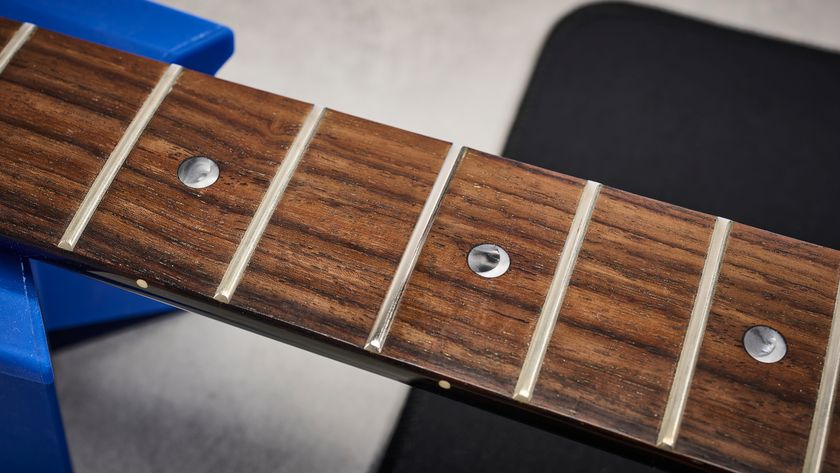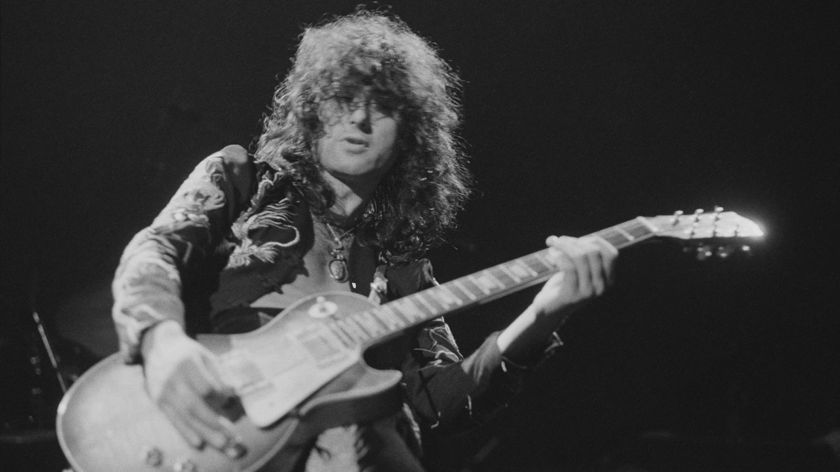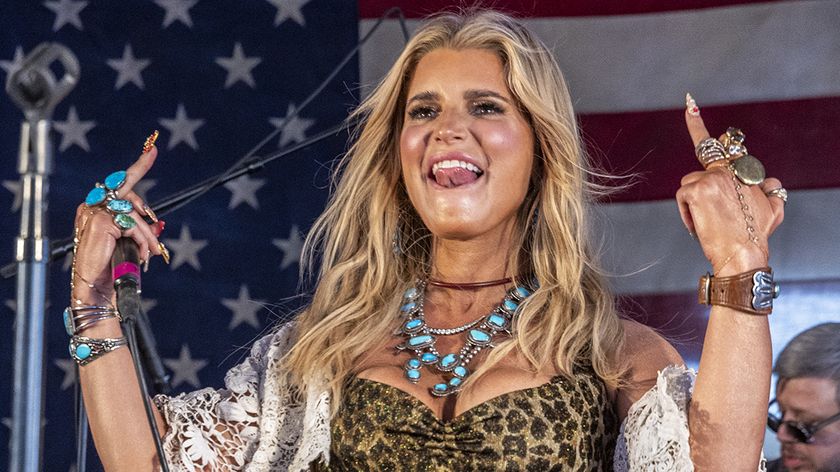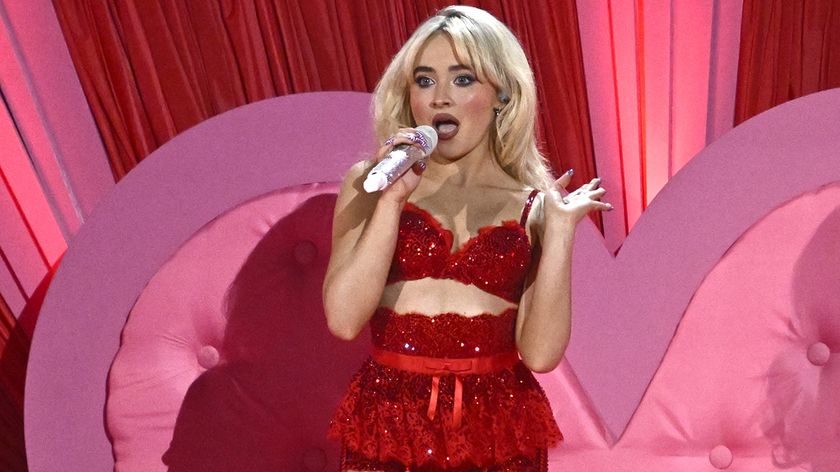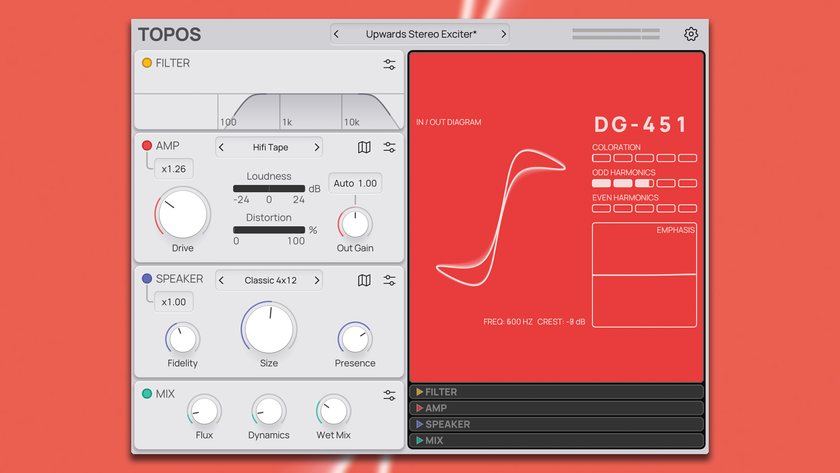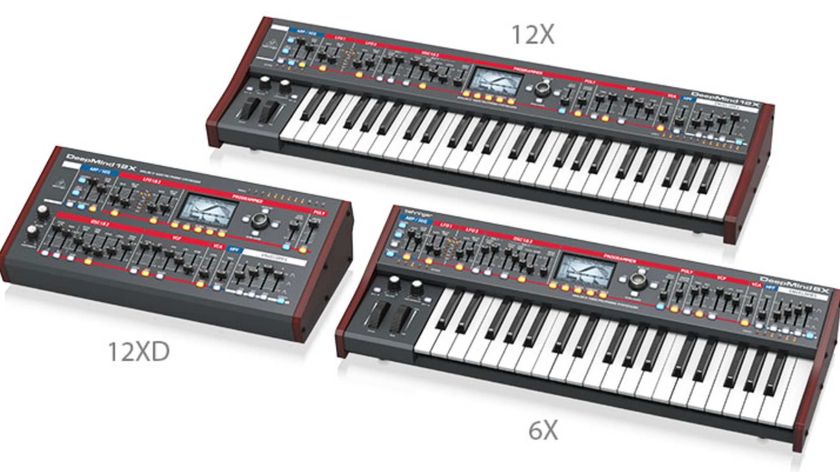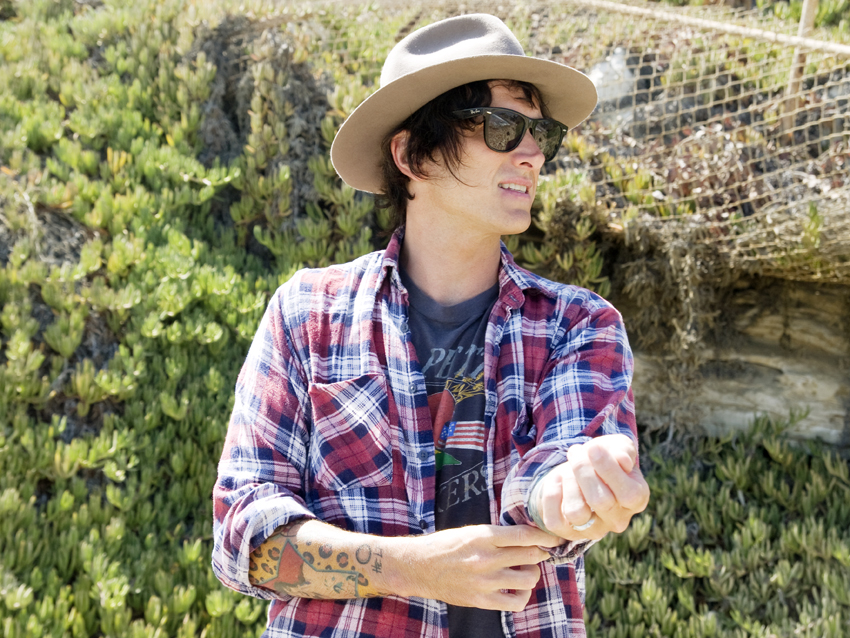
Butch Walker's production resume boasts names such as Pink, Weezer, Avril Lavigne, Pete Yorn, Katy Perry, Dashboard Confessional, among dozens of others.
You get the picture. He's the man. The new go-to guy. Some are even calling him 'the next Rick Rubin,' a sonic craftsman whose choices are driven more by his eclectic tastes than commercial considerations - although it's safe to say he's making some serious bank these days.
Unlike Rubin, however, the 40-year-old Walker divides his time as an artist in his own right. Back in the '90s, the Georgia native scored a hit, Freak Of The Week, with his short-lived band Marvelous 3, and since then he's put out a string of critically adored releases.
The multitasker and multi-instrumentalist (check him out playing banjolin with Taylor Swift) has now issued his most assured solo album yet. Entitled I Liked It Better When You Had No Heart, it was written and recorded (at Walker's own Ruby Red Studios, in his home base of Santa Monica, CA) in just five days with his band The Black Widows.
With tracks that run the gamut from authentic roots rock (Trash Day) to the epic sweep of Phil Spector (Pretty Melody) to a spot-on ELO homage (Trust Me), it's a first-listen winner that hits as deep lyrically - if the gorgeous Be Good Until Then doesn't have you weeping, nothing will - as it does musically.
While finishing production work on Avril Lavinge's upcoming record, Walker is gearing up to tour extensively throughout 2010 with The Black Widows. Recently, he sat down with MusicRadar to discuss his thoughts on music making, his new album and to dispense some sage advice to all the budding Butch Walkers out there ("Don't try to be me! I'm just learning how to do that"). And on the subject of vocalists who rely on Auto-Tuning, the admitted "old-schooler" let loose with both barrels.
What's more impressive than the fact that you recorded the album in five days is that you wrote it during the same time period.
Get the MusicRadar Newsletter
Want all the hottest music and gear news, reviews, deals, features and more, direct to your inbox? Sign up here.
"I had nuggets of song ideas, and when I decided it was time to make this album, one of the guys in the band, Michael Trent, he and I went into the studio and we got on a roll. Every morning, we'd pull out the guitars in the lounge and the tunes came fast.
"Michael's a great lyricist, and he already had a lot of terrific things in mind. I had been sending him MP3s from my laptop, so by the time we sat down to figure out the songs, he was pretty much all there. We'd write a few songs during the morning and in the afternoon the band would come in and blast through 'em."
Now, when you say 'laptop,' what kind of program were you demoing with?
"I use Logic, which is very easy to work with. My demos were very bare bones though. They were basically me singing and strumming the guitar - no bass and drums or anything like that. They were just me capturing the moment as fast as I could."
On this record, you have a bit of everything. There's Americana, rock, folk-rock, country - there's even shades of the Phil Spector Wall Of Sound. Which begs the question: what the hell did you grow up listening to?
[laughs] "All of the above. I think the only thing missing from this album, and I only just shed it recently, is my metal roots. I mean, I don't hate metal, and I would never deny that I grew up listening to it and being influenced by it. But it doesn't figure into my world like it once did. I'm 40 years old now, and I don't relate to KISS and Motley Crue like I did when I was 17. You know what I mean?"
Well, you do have a song on the new record, She Likes Hair Bands. Autobiographical? Ironic? Both?
[laughs] "The answer to both is 'yes.' I'm always doing the backstroke in the sea of irony."
You play so many instruments. Was that always the case?
"I heard the first Van Halen record, and that pretty much sealed the deal for me. I immediately switched to guitar and dedicated myself to becoming a shred monster."
"I started out on drums and I was pretty terrible, but it took me a while to realize it. The town I grew up in, Cartersville, Georgia, didn't have a big talent pool, so when I was just a teenager I wound up playing drums in an Elvis Presley cover band with a bunch of guys who were in their 30s - that's how strange it was for me at first.
"Around that time, I heard the first Van Halen record, and that pretty much sealed the deal for me. I immediately switched to guitar and dedicated myself to becoming a shred monster. And in short order, I got shred-tastic. Before you knew it, all of these bands wanted me to play guitar for them. For a 17-year-old dude, that was awesome, you know?"
Video: Butch and bandmate Fran Capitanelli get back to their "shred-tastic" roots
Well, you're a mighty fine drummer now, and it seems as if there isn't an instrument you can't play. What's the story with the banjolin? I saw you playing that with Taylor Swift on the Grammys.
"Oh, that's such a cool instrument. My bass player and studio engineer, Jake, is a great multi-instrumentalist, and he came wandering in one day with this early 1900s banjolin. That ended up making its way onto several records. When I decided to do my own version of Taylor's You Belong With Me, I knew I had to put the banjolin on it."
"Taylor contacted me and said she loved what I did with the song. She asked me to do the show with her, which was a great honor, but I told her, 'I've gotta play the banjolin, of course.' That was fine with her. She's a lovely girl, and so talented."
She got a lot of criticism for that performance. Did you think her singing was off-key?
"Did she sing as well as she did in rehearsals? No. But so much goes on during a live show, and all you need is one bad monitor to fuck your whole world up. I know that's what happened to her.
"Taylor Swift can sing beautifully. So many of the people who were ragging on her for one three-minute bit are the same people who go to Britney Spears concerts and they don't even realize that she's not singing one fucking word. All these people who can't fucking sing…c'mon, man, Taylor Swift was trying hard. Her monitor was off. Give her a break."
You're blossoming as a artist in your own right, but much of your work has been as a producer. Did you always want to be on the other side of the glass?
"So many of the people who were ragging on her for one three-minute bit are the same people who go to Britney Spears concerts and they don't even realize that she's not singing one fucking word" Walker reacting to criticism of Taylor Swift's Grammy Awards performance
"It happened by default, but I welcomed it. I never wanted to be a producer per se, and I'm careful not to let it take over my creative life. So many producers I know who write these big mega-hits, they were probably really good artists at one time and just gave it up. They realized they could make a lot more money creating other people's music, but I don't know if they're totally happy.
"I meet these guys and they're so into hype and overcompensating for something that's lacking: 'Hey, check me out! I've got five songs on the charts. I've had three number five hits this year. Woo-hoo!' They go on and on and I'm just like, 'Ease up, bro.' I keep thinking, Well, maybe you should go out and play some of your own music.
"I do realize and respect the day-job aspect of being a producer though. Just like the guy who works at Starbucks so he can afford to buy a PA system or buy instruments - I've got the same job, really. I might not always enjoy making the coffee, but I do it so it allows me to create my own music."
Well, you're not exactly pouring lattes. And I imagine you must get some satisfaction from helping other artists shape their music, especially when it turns out great.
"Of course. Yes, I do get enjoyment out of that. It's nice when I can help somebody get their music together, and if millions of people wind up hearing it and buying it, that's fantastic. I don't take that for granted at all."
As a producer, what was your first big break?
"Ironically, my big break was with my own band, Marvelous 3. We had a song called Freak Of The Week, and we were on the radio sandwiched between all those other 'number bands' that were big at the time - the 41s and the 182s and all those guys.
"I'm really glad it was my own band, though, because people heard it and found out that I produced it, and pretty soon I started getting calls to produce other acts. You can't plan something like that - and it certainly wasn't my plan. I think Avril was one of the first records I did after that, and the ball got rolling."
Let's talk about some of the songs on your record. Trash Day has such a great narrative; it's like a little story.
"Thanks. Funnily enough, that was one of the songs that Michael Trent didn't do any of the lyrics for. On the other hand, I didn't have any music for it, so Michael really helped me with that one. I had the ammunition, but I didn't know where to shoot it." [laughs]
The song called Pretty Melody is a wonderful homage to Phil Spector. What was it like to record orchestrations at Abbey Road?
"It was great. I've done the strings to three records at Abbey Road. I work with an arranger named Rob Mathes who's with the London Symphony Orchestra, and during these sessions there's a lot of the old cats who used to play on Beatles records. It's a tremendous feeling to have those guys play your music.
"Sometimes I'll have a dummy version of strings on a demo and Rob will write everything out and turn it into magic. What I like about how he works is, he always goes for a classic vibe. Of course, when you're working at Abbey Road, sometimes that timeless vibe just seems to happen naturally. A lot of history within those walls."
Speaking of classic, Trust Me has an unmistakable ELO feel to it.
"Oh, definitely. Believe me, I know everywhere I've stolen from. [laughs] It's as ELO as ELO can get. I love Jeff Lynne. What a brilliant guy."
And the song Be Good Until Then - my word, talk about heartbreaking!
"Thank you. I wrote that for my son, who's two and a half. It hit me one day how precious he is and how good I want him to turn out, and how…just how fragile everything is. I was raised well, and I'm trying to do the same with my son. Be Good Until Then is my little lullaby to him. That's the demo on the album. I thought it had a charm I couldn't improve upon."
Let's talk about producing some more. What kind of advice would you have for all the budding producers and songwriters - all the people who want to do what you're doing?
"That's a hard one, because it's not like you have to do this, that and the other and suddenly the phone will be ringing. However, the first thing I'd say is, be prepared for a lot of falls. I've hit a lot of speedbumps and experienced a lot of letdowns along the way. I think maybe knowing early on what you want to be is important, because it took me till I was in my 30s before I could kind of settle in and figure things out.
"I'm just fortunate enough to have had some good luck streaks. The trick I'm finding, though, is to try to keep your mind five steps ahead of where you are today and always be anticipating what's coming, whether it's good or bad.
"Trite as it may sound, you have to be true to yourself. You can't be so concerned with what's hip or what you think is going to sell, because that changes week to week."
Sounds like the wisdom of someone who's paid his dues.
"Been there. I've been chewed up and spit out by record companies and the business so many times. It's difficult. But you can't let it get you down, not if music is what you really want to do."
You have to keep focused on your craft somehow.
"A producer should know how to play as many instruments as possible. Not just because you might get to play on records, but you'll know what songs need."
"Absolutely. Musically, I'd also say it's important to learn how to write songs. Because if you can write, it'll help you when you're in the studio with an artist who is having problems. Plus, it'll help you zero in on artists who do know how to write.
"Another thing I'll say is that a producer should know how to play as many instruments as possible. Not just because you might get to play on records, but you'll know what songs need. You'll know what instruments work here, work there - you'll know how to provide the musical bed a song needs."
Talk to me about the kinds of gear you use. What do you have in Ruby Red Studios?
"I have a combination of digital and analog equipment, so I have a lot of flexibility to go 24 or 48-track or whatever. Pro Tools, Logic…I use it all. But I try not to get so wrapped up in the technology. I'm more of an old-school, less-is-more guy."
What do you use at home?
"I have a laptop that I run Pro Tools and Logic on. Real simple. I can create a drum track using a keyboard sequencer, so a lot of times we'll replace that with real drums in the actual studio. Working backwards is the name of the game."
Of all the artists you've produced, who would you say provided you with the most gratifying experiences?
"Funnily enough, a lot of the big records don't always turn out to be the most pleasant of times. On the other hand, some of the tiny records that get shoved aside by record companies are the ones that are really special.
"One of the dirty little secrets about the business is, you'll finish a record and the first things people at record companies will say is, 'Well, does she wear lingerie? Does she look like Britney Spears? Is she Auto-Tuned?' Because that's what they want. Seriously. Good music scares people. It doesn't do record companies any good to sell 30,000 albums; they have to sell a million just to break even. And people that buy a million records are buying Britney Spears records."
You've worked with Pink extensively. I'm certainly assuming you don't include her in the 'Britney Spears' category.
"I was just about to mention Pink. Of the artists I've worked with, I will say Pink really has it goin' on. She's an animal. Talk about a girl who is a monster singer and a monster talent. She's so gifted in the studio. People might be surprised to hear that, but it's true. She's a terrific writer and she has a very broad musical vocabulary. Plus, you get her behind the mic with a glass of wine and a cigarette and she just belts it out. There's no pitch problems or lack of sincerity - she nails it."
Who would be your dream artist you'd love to work with but haven't yet had a crack at?
"Well, you see...I have this tattoo on my arm of a guy named Elvis Costello. Let's just say it's not there 'cause it looks cool." [laughs]
Joe is a freelance journalist who has, over the past few decades, interviewed hundreds of guitarists for Guitar World, Guitar Player, MusicRadar and Classic Rock. He is also a former editor of Guitar World, contributing writer for Guitar Aficionado and VP of A&R for Island Records. He’s an enthusiastic guitarist, but he’s nowhere near the likes of the people he interviews. Surprisingly, his skills are more suited to the drums. If you need a drummer for your Beatles tribute band, look him up.

